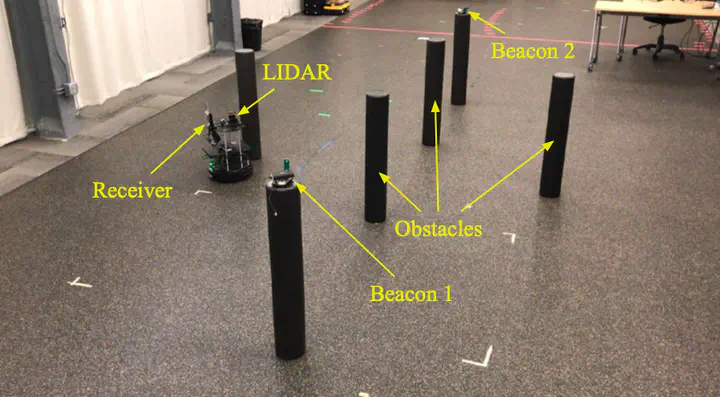
Abstract
We physically demonstrate a reactive sensorimotor architecture for mobile robots whose behaviors are generated by motivation dynamics. Motivation dynamics uses a continuous dynamical system to reactively compose low-level control vector fields using valuation functions which capture the potentially competing influences of external stimuli relative to the system’s own internal state. We show that motivation dynamics 1) naturally accommodates external stimuli through standard signal processing tools, and 2) can effectively encode a repetitive higher-level task by composing several low-level controllers to achieve a limit cycle in which the robot repeatedly navigates towards two alternatively valuable goal locations in a commensurately alternating order. We show that these behaviors are robust to perturbations including imperfect models of robot kinematics, sensor noise, and disturbances resulting from the need to traverse difficult terrain. We argue that motivation dynamics can provide a useful alternative to controllers based on hybrid automata in situations where the control operates at a low level close to the physical hardware.